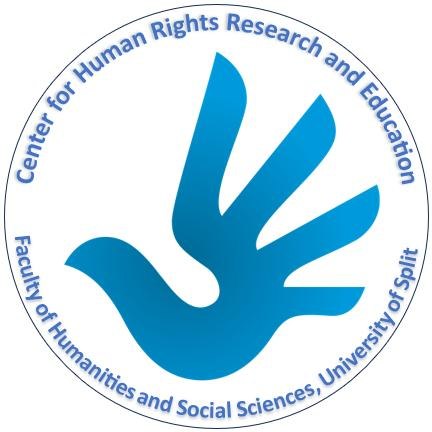
Center for Human Rights Research and Education
Members:
Full. prof. Marita Brčić Kuljiš, Ph.D. (head of the Center)
Assoc. prof. Bruno Curko, Ph.D.
Assoc. prof. Marija Lončar, Ph.D.
Assoc. prof. Gordan Matas, Ph.D.
Senior Assistant Blanka Čop, Ph.D. (Faculty of Law)
Senior Assistant Anita Lunic, Ph.D.
Ivana Dizdar, Assistant, Department of Croatian Language
Vedrana Premuž Đipalo, director of the Ethnographic Museum Split
Franciska Dujmović, mag. Phil.
The Center for Human Rights Research and Education is a one of the established centres of the Faculty of Humanities and Social Sciences, University of Split.
The Center's guiding principle is the belief that each of us, everywhere and always, should be an advocate and guarantor of human rights. Human rights are not abstract, foreign, or unclear; rather, they are values that permeate all aspects and dimensions of human life. These rights belong to every person by the very act of being born—by entering the human world—and as such, we must understand and protect them.
The primary goal of the Center is to conduct scientific research and organize education in the field of human rights. Achieving this goal will be accomplished by establishing a network of scientists and researchers through intra-university, inter-university, and international cooperation; initiating scientific research projects; organizing scientific and professional conferences and other events; holding guest lectures by relevant experts, and so on. Through all these activities, special emphasis will be placed on involving students with the aim of raising awareness about the role and importance of human rights in everyday life.
The scientific research and educational activities will thematically cover all areas of human rights, with a particular focus on specific human rights, such as the rights of persons with disabilities, children's rights, women's rights, the rights of national minorities, the rights of sexual minorities, refugee rights, and human rights that are not covered by existing generations of human rights but are the result of technological development, information and communication technology, the establishment of cyberspace, artificial intelligence, etc.
 Pristupačnost
Pristupačnost